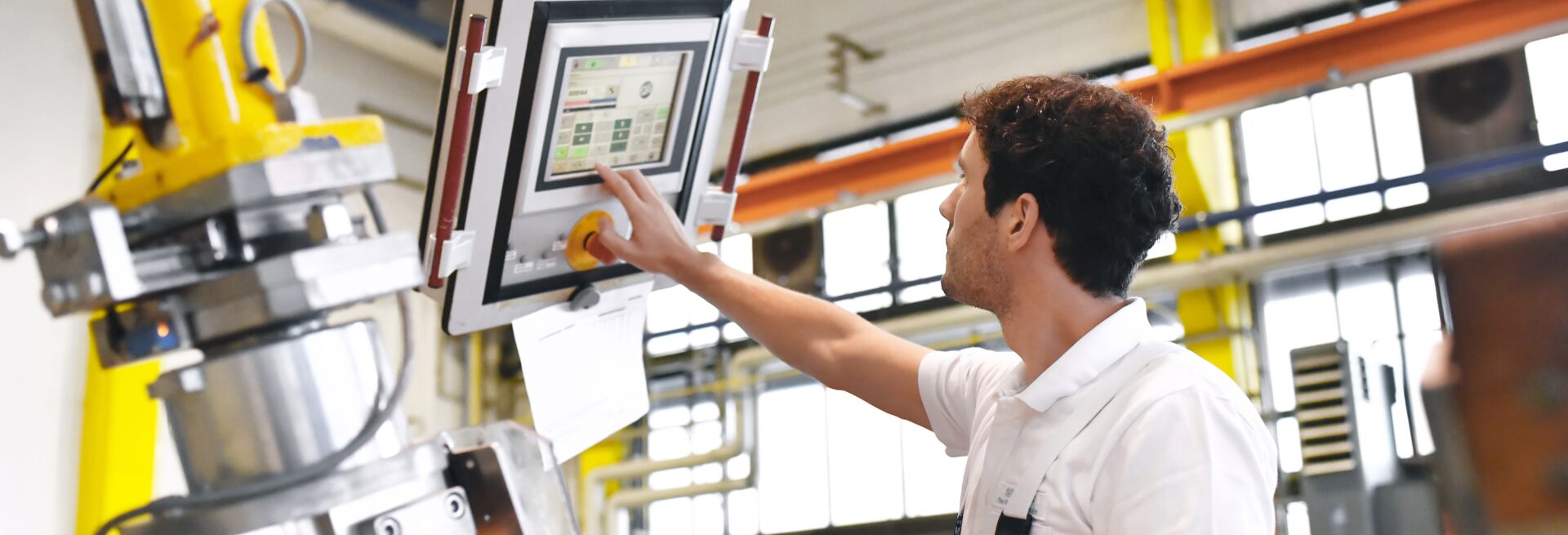New Clean Hydrogen Tax Credit on the Horizon
A new tax credit, the clean hydrogen tax credit, may be on the horizon for businesses that invest...

The rise of Industry 4.0 has revolutionized the manufacturing landscape, ushering in an era where the
fusion of advanced Information Technology (IT) and industrial processes has become the norm. This
paradigm shift, often referred to as digital transformation, has profound implications for how
manufacturing enterprises operate, innovate, and remain competitive in an increasingly dynamic
global market.
At its core, Industry 4.0 represents a convergence of the physical and digital realms. The marriage of
traditional manufacturing techniques with cutting-edge IT solutions is enabling the creation of smart
factories that can communicate, analyze data, and make decisions in real-time. This transformation is
enabled by the integration of key IT components such as the Internet of Things (IoT), data analytics,
and advanced communication technologies.
The Internet of Things stands as one of the pivotal pillars of Industry 4.0. By embedding sensors and
communication devices within machinery and equipment, manufacturers can gather real-time data
on various aspects of the production process. This data provides valuable insights into the
performance, health, and utilization of machines. Through predictive maintenance, manufacturers
can identify potential faults before they lead to costly breakdowns, minimizing downtime and
improving overall operational efficiency.
Real-time data analytics is another crucial facet of IT integration in manufacturing. The ability to
collect, process, and analyze vast amounts of data generated throughout the production process
empowers manufacturers to make informed decisions. For instance, analyzing production data can
reveal bottlenecks and inefficiencies, leading to optimized workflows. Data-driven insights also
extend to quality control, where automated monitoring and analysis can identify defects early in the
production cycle, reducing waste and ensuring consistency.

Enhancing efficiency and agility are key objectives of Industry 4.0, and IT technologies play a pivotal
role in achieving these goals. Supply chains become more streamlined and responsive through real-
time data sharing, enabling just-in-time production and inventory management. Moreover, dynamic
production scheduling, driven by real-time demand forecasts, allows manufacturers to adapt swiftly
to shifting market demands. This agility not only reduces overproduction but also enables
manufacturers to seize new opportunities quickly.
The digital transformation also empowers manufacturers with data-driven decision-making
capabilities. Machine learning and artificial intelligence algorithms sift through vast datasets to
uncover hidden patterns and insights. These insights can inform strategic decisions, from identifying
new product opportunities to refining existing designs based on customer preferences. Such data-
driven decisions can significantly reduce risks associated with uncertainty and enhance the efficacy of
innovation efforts.
However, the integration of IT in manufacturing is not without its challenges. One of the foremost
concerns is cybersecurity. As factories become increasingly connected, they become potential targets
for cyberattacks that could disrupt operations and compromise sensitive data. Striking a balance
between connectivity and security requires robust cybersecurity measures and constant vigilance.
Moreover, the digital transformation necessitates a skilled workforce capable of navigating this new
landscape. The convergence of IT and manufacturing demands a blend of technical skills that go
beyond traditional manufacturing know-how. Initiatives to upskill the workforce and foster a culture
of continuous learning are crucial to ensuring that the benefits of Industry 4.0 are fully realized.
Looking forward, the trajectory of digital transformation in manufacturing is promising. The ongoing
development of edge computing, blockchain, and augmented reality technologies holds the potential
to further amplify the capabilities of Industry 4.0. Collaboration among stakeholders, including
manufacturers, researchers, and policymakers, will be key to overcoming challenges and unlocking
the full potential of IT in manufacturing.
In conclusion, the integration of IT in manufacturing as part of the Industry 4.0 revolution is reshaping
the way goods are produced, distributed, and consumed. Smart factories equipped with IoT sensors,
real-time analytics, and data-driven decision-making processes are transforming the efficiency, agility,
and innovation potential of manufacturing enterprises. As the manufacturing landscape evolves,
companies that harness the power of information technology stand to reap substantial rewards in
terms of productivity, competitiveness, and adaptability.
Explore our latest insights
More arrow_forward
A new tax credit, the clean hydrogen tax credit, may be on the horizon for businesses that invest...

The Clean label has transitioned from trend to a lifestyle placing pressure on the food and bever...

Provincial governments are slowly unveiling their provincial budgets outlining fiscal strategies ...

Recently, Canadian representatives attended COP27 to discuss the actionable steps to implement to...